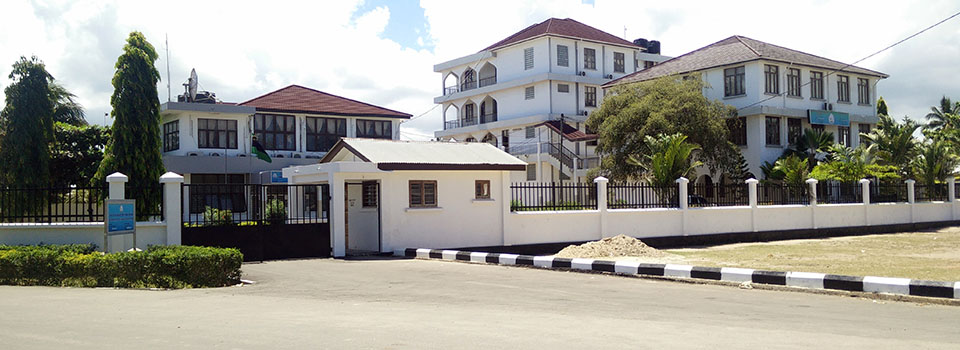Partnership – State University of Zanzibar
BSU III Partnership between the State University of Zanzibar (SUZA), University of Copenhagen and Aarhus University
Through BSU partnership, SUZA’s aspiration of becoming a preferred higher education institution in the Eastern African region is being implemented on the basis of building research-vibrant community. With the ongoing BSU III project, SUZA is keeping this aspiration alive through collaboration with the University of Copenhagen and Aarhus University. Following a model of mentorship-approach, SUZA with her Northern partners continuously discuss, work and implement alternatives to build a web of research on the themes very pertinent to Zanzibar society.
Strategically, environmental health and marine sciences are given high priority at SUZA, these areas also play important roles toward supporting the Archipelagos’ socio-economic development activities within the framework of Zanzibar national economic growth strategy (MKUZA II & MKUZA III) and blue economy policy. Thus, the BSU III has prioritized thematic focus on Environmental Public Health (EPH), and Marine and Coastal Ecosystem Health and Services (MaCES). Embedded in this strategy is the allocation of resources to SUZA’s administrative and research systems with the overall aim of enhancing capacity to effectively conduct and manage research, deliver relevant and high quality education, as well as engage in active public and private partnerships to maximize knowledge sharing and a culture of collaborative solutions for the problems facing key economic sectors in Zanzibar.
Capacity building is happening through multiple fronts; addressing administrative systems to manage and implement research activities as well as establishing a laboratory and insectarium facilities that can be used to support research activities, and teaching and implementation of solutions through collaboration with private and public sectors. Similarly, ICT platforms to facilitate graduate research and management of research resources as well as establishing effective ICT platforms to facilitate access to online learning materials for both teaching and research are addressed through this cross cutting issues.
More significantly, SUZA is reaching out to the community; the research process is being enhanced to the society by establishing relevant research database, protocols and framework with close involvement of public institutions and private enterprises to create sustainable solutions in the areas of waste management, control of malaria vectors in tourism sector, benthic cover, water quality and hazardous waste management to improve research in marine ecosystem health and services. Parallel to this, is the PhD training of two staff on EPH with focus on waste management and MaCES addressing benthic cover, as well as establishment of Masters of Science in Environmental Health.
This community engagement, has created a better chance to assess the real life challenges and opportunities related to the introduction of new technologies or modelling studies such as waste management solution models.
Thus, SUZA BSU III project thematic choices and outcomes are well calculated, relevant and strategic; clearly builds on our strength and invigorate with other ongoing projects the EnSUZA project supported by FFU; a partnership project between SUZA, Open University of Tanzania, University Copenhagen, Aalborg University and Copenhagen Business School has prioritized tourism as a central focus at forging project outcomes. This ensures synergies across projects and sharpens the impacts of the project efforts being developed in the society and to our Universities.

